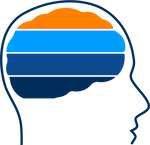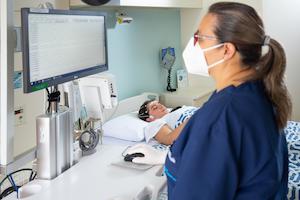Phone number: 1800Hmetro 399800, Hospitalization ext. 2194, 2195 y 2197, Neurophysiology unit ext. 2034.

Our propose:
MetroNeuro wants to provide to their patients with accurate diagnostics, personalized treatments, and health outcomes that improve life quality.
Experience:
We have a team of neurologists, neuropediatric, epileptologist, and neurophysiologist leaders in their subspecialty and with the best trajectory and experience. They will be ready to provide an accurate diagnosis and effective treatment.
Equipment:
With our cutting-edge technology, you will be able to perform prolonged video - electroencephalography monitoring studies to handle the diagnosis and treating epilepsy. We can help you solve your sleep problems with polysomnography studies and evaluate neuromuscular disorders through electromyography and nerve conduction study (NCS).
We take care of your dreams.
"Who sleeps well, lives longer and better."

We have an advanced Polysomnography team:
Also called a sleep study, this is a comprehensive test that records neurological and respiratory variables that allow us to evaluate the quantity and quality of sleep to diagnose the presence of sleep disorders.
Types of sleep disorders that could be diagnosed in the exam:
- Obstructive Sleep Apnea.
- Snoring.
- Insomnia
- Bruxism.
- Restless legs syndrome (RLS).
- REM Sleep behavior disorder.
- Night terrors.
- Somnambulism.
- Other parasomnias.
Video-electroencephalography studies
This test detects the electrical activity of the brain by analyzing the electrodes that are attached to the scalp. Electroencephalography is one of the main studies to diagnose epilepsy, but it can also help detect other pathologies. At the Hospital Metropolitano, we have equipment with 32,64 and 128 channels to carry out the following studies.

- Video- Standard EEG: 1 hour long
- Video – EEG continues recording: 1 to 3 hours hour long.
- Video – EEG continues recording (12 to 24 hours long or several days)
- Cardiography and neurostimulation: For patients with refractory epilepsy, we want to identify an epileptogenic focus, that is, the area of our brain that generates abnormal electrical discharge. This offers the patients the possibility of a surgical procedure or the placement of a vagus nerve simulation system.
